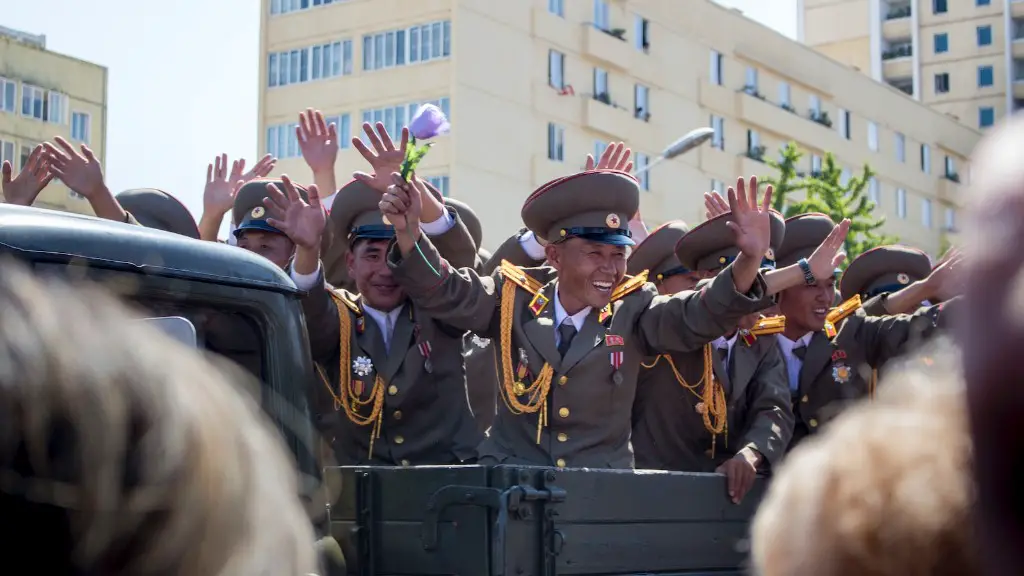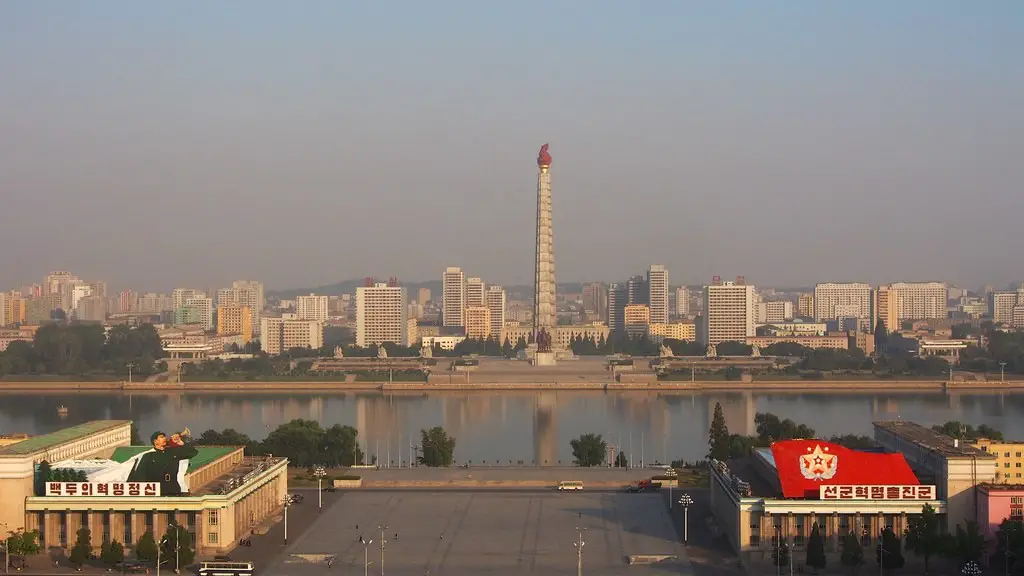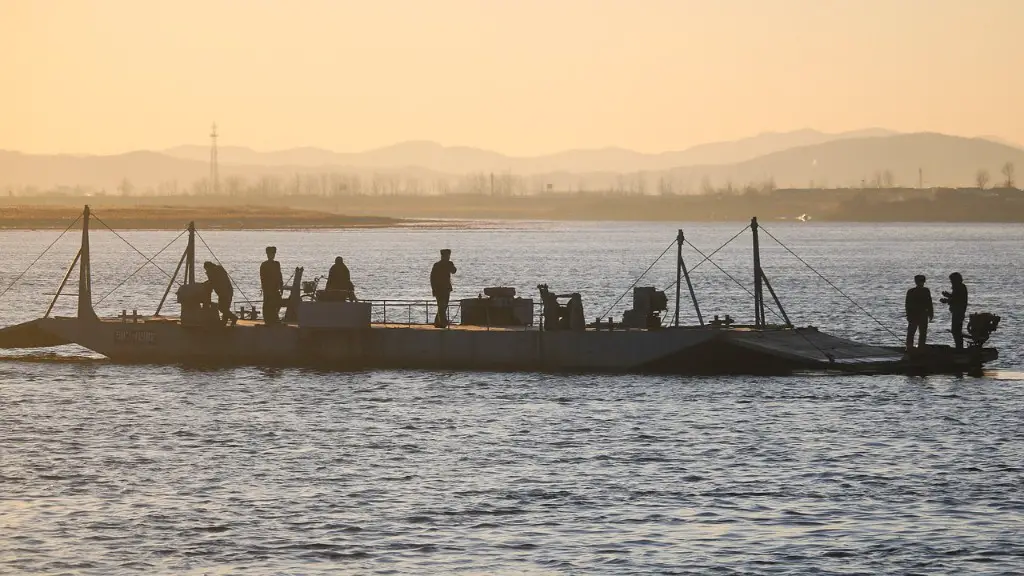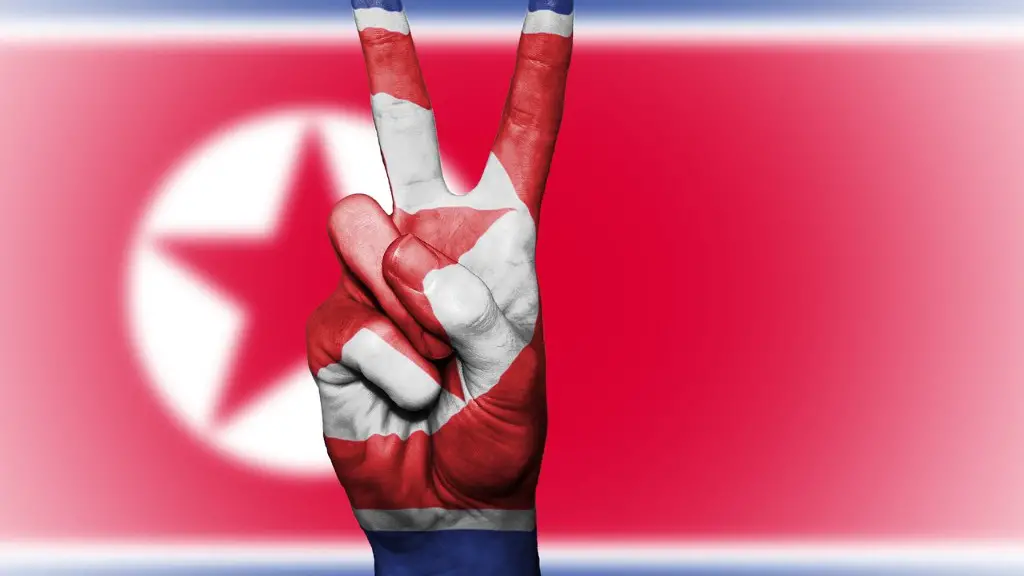What is the conflict with North Korea? North Korea is a small country located in East Asia, and it is roughly the size of the US state of Mississippi. It is an isolated dictatorship, led by the Kim Jong Un regime since 2011, and has been noted for its bizarre and oppressive behavior. The conflict with North Korea lies in its nuclear ambitions that have caused much international tension and concern.
North Korea maintains an official policy of “Juche” which is a mixture of Confucian principles, Marxist-Leninism, and nationalism. This policy has led to their isolation from the rest of the world and their refusal to cooperate with international nuclear organizations, such as the Nuclear Non-Proliferation Treaty. This has meant that the country is free to pursue its own nuclear weapons program without restriction.
International sanctions have been imposed on North Korea due to their nuclear activities, most recently in 2017 when an oil embargo was put in place. These sanctions have done little to sway the Kim Jong Un regime and have had a crippling effect on the country as a whole. The UN even warned in 2019 that North Korea is in the midst of a major food crisis due to the lack of food and fuel imports.
North Korea’s nuclear weapons program has been the source of tension and fears of a military conflict between North Korea and the United States. The US has maintained a strong presence in the region since the 1950s, and there have been several instances of military posturing from both sides. In 2017, US President Donald Trump threatened to unleash “fire and fury” against North Korea, and there were also threats of war from Pyongyang. This has put the US and its allies on high alert, as North Korea has never hesitated to use force when it perceives a threat to its security.
The US has worked to put pressure on North Korea to bring them back to the negotiating table. This has included the US working with China and South Korea to impose tougher sanctions. The US has also increased its military presence in the region, and held several joint exercises with South Korea and Japan.
The international community has long hoped that North Korea would end its nuclear weapons program and come to the negotiating table. However, despite North Korea’s willingness to talk, the Kim Jong Un regime has continued to make bellicose threats and has yet to demonstrate any concrete steps towards denuclearization.
North Korea’s actions have created a major dilemma for the international community. On one hand, it is clear that the country must not be allowed to develop a nuclear arsenal that could threaten its neighbors and the world. On the other hand, there is an underlying fear that if North Korea is pushed too hard, it could lead to a full-scale military conflict.
North Korea’s Relations with the US
The relationship between North Korea and the United States has been tense since the 1950s. With the failed 1994 Agreed Framework to denuclearize the Korean peninsula, much mistrust still exists and North Korea continues to pursue a nuclear weapons program. This has caused much tension in the region and has led to a diplomatic stalemate. US President Donald Trump has attempted to engage the country, meeting with Kim Jong Un in 2018 and 2019, but these meetings have failed to bring about any lasting change and North Korea has not taken any substantial steps towards denuclearization.
The US has attempted to use sanctions and other economic pressure to bring North Korea back to the negotiation table, but this has had no effect on the country. Instead, North Korea has continued to develop and test its nuclear missile capabilities, even launching two missiles over Japan in 2017 in a show of force. These actions have put the US, its allies, and the entire region on high alert and have increased the potential for a military conflict.
The United States has long maintained a strong military presence in the region and continues to employ “maximum pressure” against North Korea. The US has also worked with its regional allies, such as South Korea and Japan, to take a unified stance against the North Korean regime. This has meant that the US and its allies can send a unified message to North Korea and work to apply diplomatic pressure that could eventually lead to a resolution of the nuclear crisis.
North Korea and Regime Change
The discussion of a potential regime change in North Korea has been a topic of debate for many years. US President Donald Trump has talked about the possibility of replacing the current leader of North Korea, Kim Jong Un, with a more moderate leader. However, this is a risky proposition with no guarantee of success. The Kim Jong Un regime has been entrenched since 2011 and is well aware of the threat of a foreign-backed regime change. Moreover, the US and its allies do not want to create a situation in which a more unstable government could come to power and threaten its neighbors.
To that end, the US and its allies have chosen to focus on diplomatic solutions and United Nations sanctions to bring North Korea back to the table. This is a slow process but the international community believes that it is the only way to get the Kim Jong Un regime to agree to denuclearization. There is also a hope that a more stable and peaceful North Korea could eventually emerge, with a new generation of leaders willing to engage in positive dialogue with the rest of the world.
The United States is also working to bolster its alliances in the region by engaging in joint military exercises with South Korea and Japan. This is intended to demonstrate the US’ commitment to its regional allies and to deter Kim Jong Un from taking any aggressive action. In addition, the US has been involved in international negotiations with the North Korea, in an effort to find a diplomatic solution to the crisis.
International Reactions to North Korea
The conflict with North Korea is a source of global concern, as it is a threat to international peace and security. Many countries, including China, Japan, and South Korea, have strongly opposed North Korea’s nuclear weapons program and have called for the Kim Jong Un regime to halt its activities. In addition, the United Nations Security Council has imposed a range of targeted sanctions on the country in an effort to persuade the regime to denuclearize.
The international community is also exploring non-military solutions to the North Korean crisis. Since 2018, South Korea has taken the lead in diplomatic engagement, meeting with North Korean officials in an attempt to resolve the conflict. This is an effort to bring North Korea back to the negotiating table and to ultimately reach an agreement to denuclearize the Korean peninsula.
The US has also engaged in direct talks with North Korea, although it has been unable to produce any concrete results. US President Donald Trump and North Korean Chairman Kim Jong Un held a historic summit in 2018 and 2019, but the talks did not lead to a resolution of the crisis. However, both leaders did agree to a vague commitment to denuclearize, so there is still hope that the US and North Korea can eventually reach an agreement.
Economic Repercussions of North Korean Conflict
The conflict with North Korea has had drastic consequences for the people of the country, particularly in terms of the economy. The United Nations estimates that over ten million people are suffering from food insecurity and it’s estimated that over 40 percent of the population is living in severe poverty. North Korea is also highly underdeveloped, and its economy has been almost completely isolated from the rest of the world.
The United Nations has imposed a number of economic sanctions on North Korea, all aimed at pressuring the country to denuclearize. These include an oil embargo, restrictions on arms sales, and asset freezes. These measures have had a major impact on the North Korean economy, exacerbating the country’s already dire economic conditions.
The conflict has also had a major effect on regional stability. North Korea’s aggressive behavior has been a source of tension in East Asia and has disrupted regional trade and security. Countries in the region are wary of North Korea’s nuclear ambitions and have called on the international community to take decisive action.
The situation in North Korea is a grave concern for the international community, but progress is possible if the right approach is taken. The US and its allies are working to find diplomatic solutions to resolve the crisis and to create a more stable and peaceful region.
Humanitarian Aid for North Korea
Given the dire circumstances in North Korea, the international community has responded with several humanitarian aid initiatives. The United Nations has provided food and medical aid to the country and is attempting to mitigate the effects of the economic sanctions imposed by the international community.
The United States has also provided aid to the North Korean people, including direct humanitarian assistance. In 2018, the US provided more than $8 million in food assistance, $2.5 million in medical assistance, and $1 million in education assistance. These funds were used to help the North Korean people, particularly in areas such as nutrition, health, and education.
Despite the United States’ attempts to provide help, the humanitarian situation in North Korea has not improved significantly. The UN continues to call for the lifting of international sanctions and for the unrestricted flow of humanitarian aid into the country. This is necessary not only to help the North Korean people, but also to create a more stable and secure regional environment.
Strategies for Denuclearization
The international community has made it clear that no military solution will resolve the conflict with North Korea. The US has instead focused its efforts on finding a diplomatic solution and working to persuade the Kim Jong Un regime to abandon its nuclear ambitions.
South Korea has been at the forefront of these efforts, meeting with North Korean officials and attempting to build relationships that could lead to a resolution of the conflict. South Korea also remains open to direct talks with North Korea, although the US has been wary of engaging in such talks without significant progress on the issue of denuclearization.
In addition, the US has sought a diplomatic solution through multilateral negotiations, primarily between the US, China, Japan, and South Korea. These talks have so far yielded no concrete results, but they still remain an important part of the US’ strategy to resolve the conflict.
Finally, the US is exploring other options, such as economic incentives, to bring North Korea back to the negotiating table and to persuade the regime to agree to denuclearize. This would involve providing economic assistance to North Korea in exchange for a commitment to end its nuclear weapons program.





